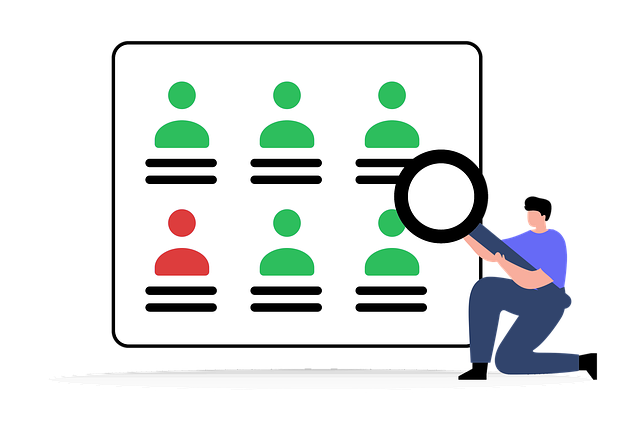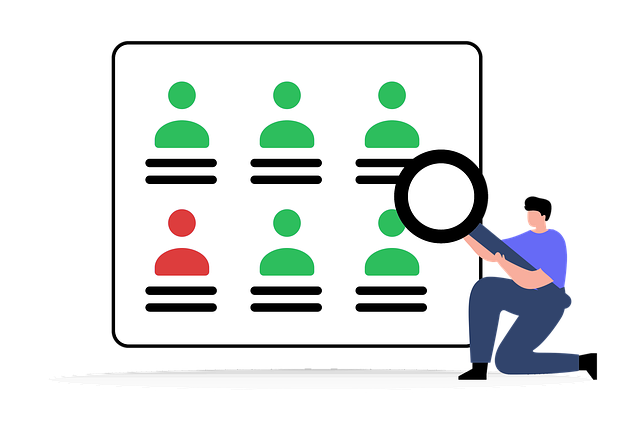Accounting firms, facing heightened cybersecurity risks with sensitive financial data, require comprehensive cybersecurity audits (focusing on SOC 2 and PCI-DSS) to protect client information. This involves evaluating security plans for on-premises and cloud storage, implementing strong access controls (like multi-factor authentication), encrypting emails, and using advanced threat detection systems. Regular backups, robust data encryption, and employee training programs are key to mitigating risks from phishing, malware, and unauthorized access. Integrating these measures strengthens digital defenses, enhances client trust, and ensures compliance with industry standards for cybersecurity audit CPAs.
In today’s digital landscape, accounting firms face unique risks with significant consequences. As cyber threats evolve, protecting sensitive financial data and ensuring business continuity is paramount. This article explores essential IT security strategies tailored for CPAs, encompassing a cybersecurity audit, robust access controls, advanced threat detection, encryption, backup strategies, and employee training. By implementing these measures, firms can fortify their digital defenses, mitigate risks, and maintain the integrity of their valuable assets.
- Understanding the Unique Risks Facing Accounting Firms
- Cybersecurity Audit: A Comprehensive Assessment for CPAs
- Implementing Robust Access Controls and Authentication Measures
- Advanced Threat Detection and Response Systems
- Data Encryption and Backup Strategies for Digital Asset Protection
- Regular Security Training and Awareness Programs for Employees
Understanding the Unique Risks Facing Accounting Firms

Accounting firms face unique cybersecurity risks that stem from their reliance on sensitive financial data and complex accounting systems. As CPAs (Certified Public Accountants) navigate an increasingly digital landscape, they become attractive targets for cybercriminals. A single breach can lead to significant financial losses, legal repercussions, and damage to client trust. Unlike general businesses, accounting firms deal with highly regulated environments, requiring strict adherence to standards like SOC 2 and PCI-DSS, which further complicates their security posture.
A comprehensive cybersecurity audit is essential for CPAs to identify vulnerabilities in their systems, processes, and policies. This includes evaluating data security plans that safeguard client information stored both on-premises and in the cloud. With remote work becoming the norm, ensuring secure email protection is crucial to prevent phishing attacks and unauthorized access to sensitive financial records. Effective strategies should encompass multi-factor authentication, encryption, regular patching, and employee training to foster a strong cybersecurity culture within the firm.
Cybersecurity Audit: A Comprehensive Assessment for CPAs

A cybersecurity audit is an indispensable tool for accounting professionals to safeguard their digital assets and sensitive client data. This comprehensive assessment involves a thorough review of a firm’s security protocols, infrastructure, and potential vulnerabilities. By employing advanced threat detection methods, CPAs can identify and mitigate risks that may go unnoticed through conventional means.
The process includes analyzing network security, cloud security for CPAs, data protection measures, and employee training programs. A well-conducted cybersecurity audit ensures that the firm’s security protocols are robust, aligning with industry best practices. This proactive approach not only protects against potential cyber threats but also instills confidence in clients, ensuring a secure partnership.
Implementing Robust Access Controls and Authentication Measures

Implementing robust access controls and authentication measures is a cornerstone of cybersecurity for accounting firms. CPAs must ensure that only authorized personnel can access sensitive financial data, reducing the risk of unauthorized transactions and data breaches. This involves employing strong password security practices, such as multi-factor authentication (MFA), which adds an extra layer of protection beyond traditional passwords. By integrating these measures into their operations, firms can safeguard their digital assets and maintain client trust.
Furthermore, email protection for CPAs is vital as emails often carry critical information and links to sensitive documents. Phishing attacks are a prevalent threat, aiming to trick users into revealing login credentials or downloading malware. Implementing secure email protocols, including encryption and spam filtering, helps mitigate these risks. Additionally, cloud security for CPAs is essential when leveraging cloud-based accounting software, as it provides robust data encryption, access controls, and regular security updates, ensuring that financial records remain secure in the digital landscape.
Advanced Threat Detection and Response Systems

Advanced Threat Detection and Response Systems have become indispensable for accounting firms aiming to safeguard their digital assets and sensitive client data. These sophisticated tools leverage machine learning algorithms and artificial intelligence to identify and mitigate potential cyber threats in real-time, a crucial aspect for CPAs conducting regular cybersecurity audits. By continuously monitoring network activities and user behaviors, these systems can quickly detect anomalies indicative of phishing attempts, malware infections, or unauthorized access—all common risks faced by CPAs in today’s digital landscape.
Implementing robust detection and response capabilities isn’t just about preventing data breaches; it’s also about maintaining compliance-level security standards that are increasingly important for accounting firms. Effective phishing defense strategies, data security plans, and proactive threat responses not only protect the firm’s integrity but also ensure client confidentiality and trust, ultimately reinforcing the reputation of CPAs in an era where digital security is a paramount concern.
Data Encryption and Backup Strategies for Digital Asset Protection

Data encryption and robust backup strategies are essential components of a comprehensive cybersecurity audit for CPAs. By implementing strong encryption methods, accounting firms can safeguard sensitive financial data, ensuring that even if there’s a breach, the information remains unreadable to unauthorised parties. This is particularly vital in protecting client records and internal financial systems.
Advanced threat detection systems should be integrated into these strategies to identify and mitigate potential risks promptly. Regular backups, stored securely both on-premises and offsite, enable swift recovery in case of data loss or corruption. Moreover, identity protection accounting measures, such as multi-factor authentication, further fortify the firm’s security protocols, making it significantly harder for cybercriminals to gain unauthorised access to digital assets.
Regular Security Training and Awareness Programs for Employees

Regular Security Training and Awareness Programs are essential components of a robust cybersecurity strategy for accounting firms. With the increasing sophistication of cyber threats, Continuous education ensures that employees stay vigilant against phishing scams, social engineering tactics, and other common attack vectors targeting CPAs. These programs should cover best practices for password security, safe email protection CPAs, and navigating potential risks in online communications.
By integrating advanced threat detection methods into their training, accounting firms can empower their teams to recognize and respond to suspicious activities promptly. Regular cybersecurity audits and simulated phishing campaigns can further strengthen employee defenses against evolving threats. Such proactive measures significantly reduce the risk of data breaches, ensuring the safety of sensitive financial information handled by CPAs and maintaining the integrity of the firm’s digital assets.
